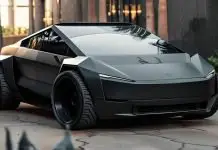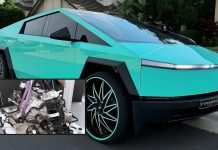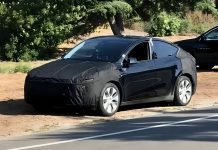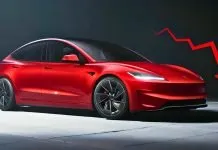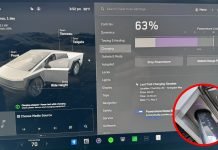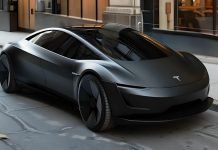Imagine a world with cars that run on electricity, making our planet cleaner and greener. These cool electric vehicles (EVs) are gaining lots of attention, and people are excited about their potential to save the environment.
But wait! There’s a strange thing happening. Some big media companies are publishing stories that make electric cars look bad. They talk about problems and make people doubt if electric cars are any good at all.
In this blog, we want to figure out why these media folks are doing this. We’ll explore the reasons behind their negative stories and try to understand what’s going on. We’ll look at the influence of big businesses, and politics, and how people’s opinions can also play a part.
Our goal is to help you see things clearly and understand the truth behind these stories. Together, let’s find out how we can make our world cleaner and better with electric cars.
So, let’s dive into this journey, where we’ll learn why some media says negative things about electric cars and why we need to keep our eyes and ears open!
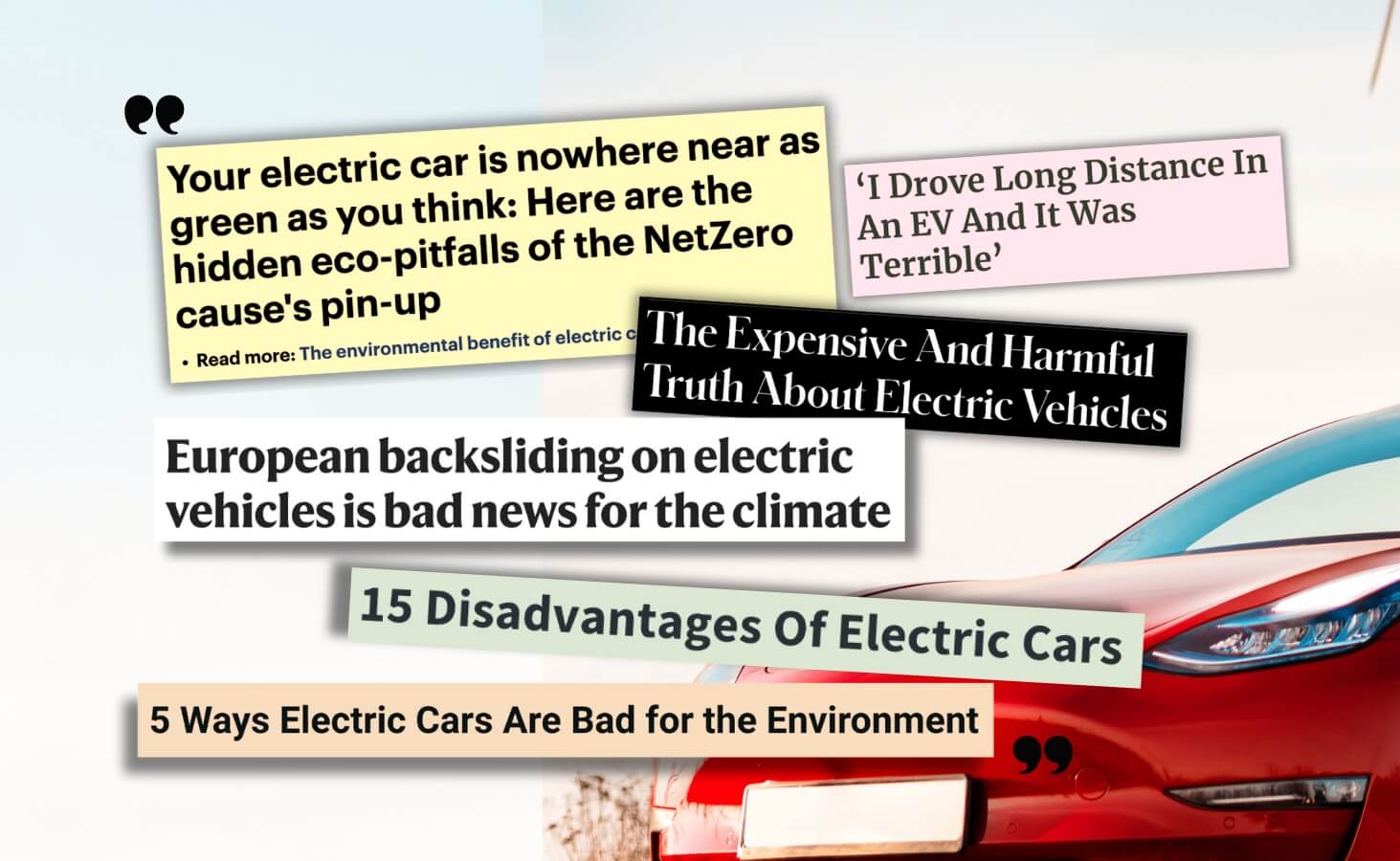
Table of Contents
Anti-EV Articles & Social Media Posts
People are bombarded with a lot of negative messages about electric cars, even though there’s no clear evidence that they’re worse for the environment than gas and diesel cars.
It feels like someone is deliberately trying to spread this negative stuff, and regular folks like us are the main targets. They don’t come right out and say it’s propaganda, but they present it as new information, suggesting that electric cars might be bad for the environment.
This campaign has been going on since electric cars became popular around the late 2010s. They use all kinds of tactics, from making baseless claims to subtly trying to make electric cars look bad.
They spread these messages through articles, and studies, and sometimes even twist the results of research to create shocking headlines. It’s quite frustrating to see all this misinformation out there.
Elon Musk, the head of Tesla, has a lot of fans who really like him, but there are also many people who don’t like him and criticize him. The problem is that what he does and says can affect how people see Tesla as a company.
This is especially true for those who already have Tesla cars or are thinking of getting one. Recently, Business Insider reported that some Tesla owners are getting fed up with Musk’s behavior and are even selling their cars because of it. It shows that people have mixed feelings about Tesla because of Elon Musk’s actions.
Prominent media houses push this negative narrative so swiftly that it just doesn’t make sense to not believe their words. There are articles with big flashy headlines that instantly makes you think in a negative direction like how you are lied about EVs, and some saying things like the top 10 or top 7 reasons why EVs are a bad idea or why you should stay away from EVs. The angelic list is endless. Honestly!
Big names like Dailymail, The Sun, and Forbes have posted numerous such posts explaining how EVs are not the right choice.
According to a post on Dailymail, producing EVs is 40% more polluting than the production of ICE vehicles. In a similar endeavor, Forbes spew out negative gestures on EVs saying that EVs could be a thing in the future but not necessarily the future of automobiles.
Hundreds of YouTube and other social media platforms are full of debate on the viability of EVs compared to ICE vehicles.
One Reddit thread on the craziness of anti-EV people goes to lengths to discuss the clash between EVs and ICE vehicles on social media. One user says that when it comes to Facebook, interactions on public posts can be quite intense. You often encounter a lot of anger and hostility from people who are quick to attack differing opinions.
What’s with the craziness of anti-EV people on FB?
by u/LockeClone in electricvehicles
It’s common to see ignorant and dismissive one-liners thrown around. If you decide to use Facebook, it’s best to limit your interactions to just your friends. Trying to educate or correct random strangers on the platform might not be worth it, as it can lead to unnecessary confrontations and frustration.
According to another user, it is essential to prioritize meaningful conversations with people you know and trust, rather than engaging in potentially futile debates with strangers on social media.
One Canadian website The Globe And Mail, points out the never-ending hatred with an incident involving a Tesla. The scene described in the narrative is deeply unsettling, revealing a distressing act of vandalism driven by apparent malice and a lack of empathy.
The woman’s deliberate actions of keying the Tesla, coupled with the cowardly act of trying to hide her fast-food waste, paint a disturbing picture of someone who appears to take pleasure in causing harm to others without provocation.
Then, she looked around to see if anyone was watching and scratched the Tesla parked next to her with her keys. Not satisfied, she did it again before driving away. The whole incident was recorded by Tesla’s cameras.
The Tesla owner, sharing the story on Reddit, couldn’t understand why this happened. They had not done anything wrong to the woman, and it was sad to see how some people can be so mean for no reason.
The Tesla owner’s disbelief and disappointment in witnessing such a senseless act of aggression against their vehicle is palpable, emphasizing the sense of injustice and shock experienced by the victim.
What Is The Motive Behind Pushing Anti-EV Narrative?
The rise of electric vehicles has sparked a significant shift in the automotive industry and has garnered increasing attention from consumers and enthusiasts alike. However, despite the numerous benefits of EVs, there has been a noticeable presence of negative articles and narratives in mainstream media.
This raises the question: What is the motive behind pushing an anti-EV narrative?
Take Tesla’s example to understand this question as the hate is real, be it on media outlets, social media platforms online, and offline. Some write about it in anti-EV articles and some go to extreme lengths to key Tesla cars or offer rolling coal on Tesla EVs.
There might be several reasons for this inadequacy in reporting on Tesla.
Covering a complex and innovative company like Tesla requires a deep understanding of the automotive industry, electric vehicle technology, and sustainable energy solutions. Not all reporters have the necessary expertise to tackle such intricate subjects, leading to superficial or misleading coverage.
Financial pressures and time constraints in the media industry can also impact the quality of reporting. In-depth investigations and research might be sacrificed in favor of quickly publishing headlines to generate clicks and attract viewership.
Moreover, there may be biases or agendas at play within certain media organizations, which can influence the way they report on Tesla. We all know how loved Elon is, right? This often results in skewed narratives and a lack of balanced coverage of things related to him, specifically Tesla.
The question again arises: Why is this happening?
Possible Reasons For The Negative Portrayal Of Electric Vehicles
The most prominent among all reasons we think is the fact that Tesla and its CEO, Elon Musk, have a significant number of dedicated supporters and fierce critics, creating a highly polarized environment. Some reporters might find it challenging to navigate this landscape and maintain objectivity, leading to biased reporting.
Overall, the inadequate reporting on Tesla can be attributed to a combination of factors, including lack of expertise, time and financial constraints, potential biases, and the complex nature of the subject matter.
Influence Of The Traditional Automotive Industry On Mainstream Media
One possible reason for the negative portrayal of electric vehicles in mainstream media is the influence of the traditional automotive industry. Established automakers, who have long relied on internal combustion engine (ICE) vehicles, may feel threatened by the rise of EVs.
As a result, they may use their financial influence to shape media narratives that discredit and undermine the potential of electric vehicles.
Political And Ideological Factors Influencing Anti-EV Articles
Another factor contributing to the anti-EV narrative in mainstream media is the influence of political and ideological agendas. Some individuals and groups may have strong beliefs or affiliations that are aligned with the fossil fuel industry or against the transition to cleaner, more sustainable transportation.
These ideologies can seep into media coverage, leading to biased and misleading articles that aim to undermine the credibility and viability of electric vehicles.
Misconceptions And Myths About Electric Vehicles In Mainstream Media
Misconceptions and myths surrounding electric vehicles can also play a role in shaping the negative narrative. As with any emerging technology, there is a learning curve and a lack of understanding among the general public.
Media outlets, in an attempt to capture attention and generate engagement, may sensationalize and exaggerate certain aspects of EVs, perpetuating misconceptions about their range, charging infrastructure, and overall environmental impact.
The Role Of Advertising Revenue And Vested Interests In Shaping Media Content
Advertising revenue plays a significant role in the media industry, and it is not uncommon for media outlets to rely on sponsorships and partnerships with various industries, including automotive companies.
This reliance on advertising revenue can potentially influence the content produced by media outlets, as they may be hesitant to publish articles that could harm their relationships with advertisers. Consequently, this may lead to a skewed portrayal of electric vehicles in favor of traditional automotive companies.
Who Is Behind Anti-EV Portray?
The reasons behind this concerted effort of anti-EV narrative are speculative, with some pointing fingers at interests like “Big Oil” or other parties indirectly funding research or media outlets to manipulate unsuspecting consumers.
While such conspiracy theories abound, a less sinister explanation might involve careless writers seeking to grab attention and generate controversy.
Whatever the motives, it is evident that the rise of EVs challenges the status quo and disrupts traditional industries, leading to a resistance that aims to sow doubt and hesitation among consumers.
Reporters play a crucial role in informing the public and shedding light on important truths, especially when they are dedicated to a specific topic, conduct in-depth investigations, have reliable sources, and receive sufficient resources and support from their news organizations.
When these elements come together, reporters can provide valuable insights and keep the public well-informed.
But, when it comes to EVs and EV makers like Tesla, a widely-discussed and high-profile subject, it appears that some major media outlets are falling short in these crucial aspects.
While it is difficult to pinpoint specific individuals or organizations responsible for the anti-EV narrative, it is clear that a combination of factors contributes to its existence. The influence of the traditional automotive industry, political and ideological biases, misconceptions, and the role of advertising revenue all play a role in shaping media content.
What To Expect In The Future?
The oil industry faces the challenge of diminishing demand for fossil fuels as electric vehicles gain popularity. Automakers and auto dealers also feel threatened as the shift towards clean energy disrupts traditional vehicle sales models.
Large utility companies are facing competition from rooftop solar installations, impacting their centralized power distribution business. All these industries have a history of running misleading messaging campaigns, and there is ample evidence to suggest that they have collectively orchestrated a smear campaign against Tesla, the most successful EV maker.
Despite the prevalence of anti-EV articles in mainstream media, the future of electric vehicles remains promising. As technology continues to advance, EVs are becoming more affordable, with longer ranges and improved charging infrastructure.
Governments around the world are also recognizing the importance of transitioning to cleaner transportation and are implementing policies to support the adoption of electric vehicles.
In the coming years, we can expect to see further advancements in battery technology, making EVs even more efficient and cost-effective. The expansion of charging networks will alleviate range anxiety and make EV ownership more convenient.
Bottomline
In the face of this propaganda, consumers must remain vigilant and critical in their media consumption. Separating fact from fiction is vital, as EVs play a crucial role in creating a sustainable future. Policymakers, environmentalists, and individuals alike must not be swayed by misinformation but rather focus on making informed choices that align with the broader goal of achieving a cleaner and greener world through the adoption of electric vehicles.
It’s sad to see so many negative articles about electric vehicles in the media. But we shouldn’t just believe everything we read. It’s essential to think critically and question why they’re saying these things. By finding trustworthy sources of information, we can make better decisions about electric cars.
The world is seeing its potential, look at all major automobile makers and hardcore EV haters like Volvo or Toyota. They did all they could to slow down the shift to electric in their power.
The auto industry has been using different tactics that influence the shift towards electric vehicles. These tactics involve lobbying against government policies that promote EV adoption, putting money into other technologies, acquiring or investing in EV companies, and investing in carbon capture and storage technologies.
The future of transportation is electric, and more people are starting to realize the benefits of electric vehicles. As we spread the truth about EVs and their advantages, the negative stories may start to disappear. We all need to work together to create a cleaner and greener future with electric vehicles.
Let’s drive positive change and make the switch to a better way of transportation.

